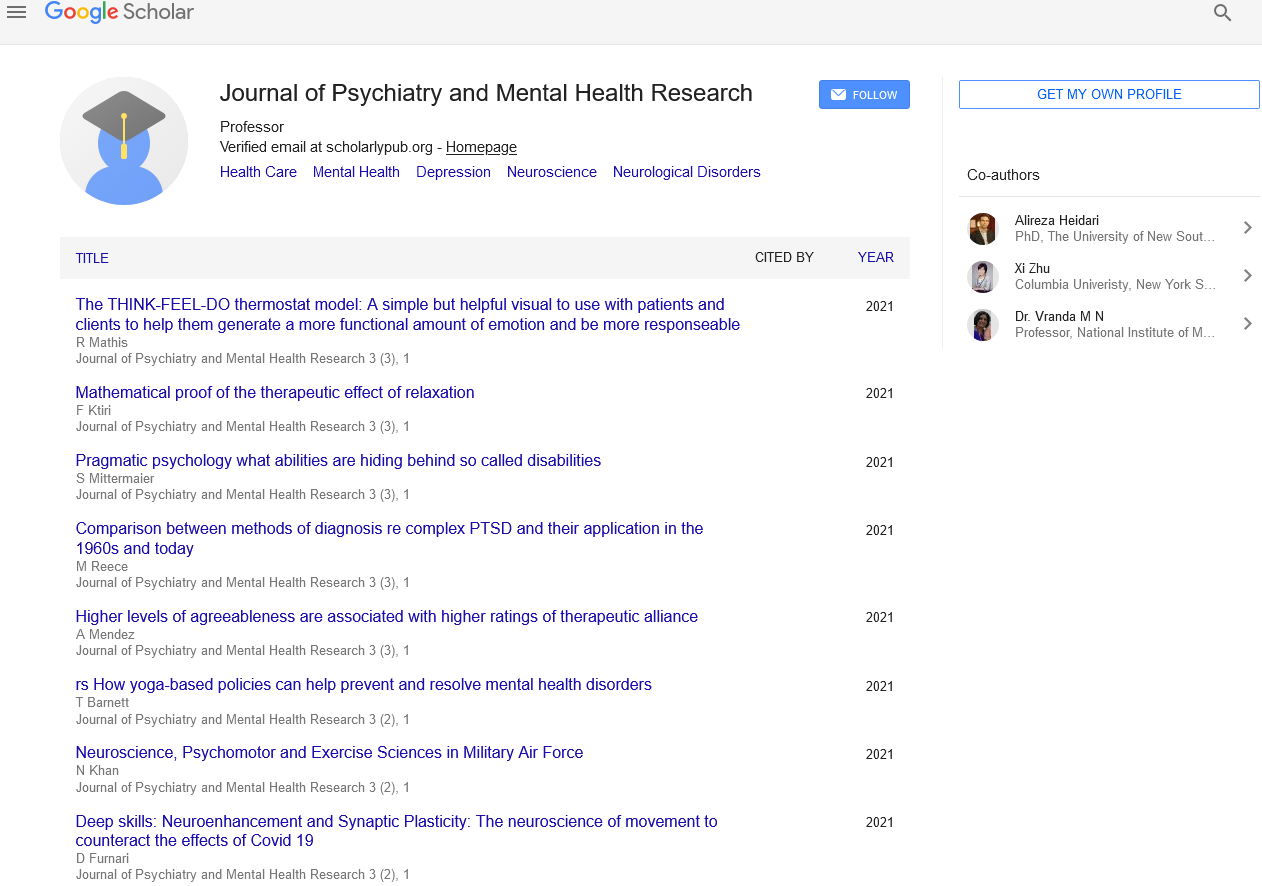Understanding Etiology: The Foundation of Disease Origins and Implications for Treatment
Received: 29-Mar-2024, Manuscript No. pulpmhr-25-7383; Editor assigned: 02-Apr-2024, Pre QC No. pulpmhr-25-7383(PQ); Accepted Date: Apr 28, 2024; Reviewed: 15-Apr-2024 QC No. pulpmhr-25-7383(QC); Revised: 26-Apr-2024, Manuscript No. pulpmhr-25-7383(R); Published: 30-Apr-2024
This open-access article is distributed under the terms of the Creative Commons Attribution Non-Commercial License (CC BY-NC) (http://creativecommons.org/licenses/by-nc/4.0/), which permits reuse, distribution and reproduction of the article, provided that the original work is properly cited and the reuse is restricted to noncommercial purposes. For commercial reuse, contact reprints@pulsus.com
Abstract
Etiology, the study of the cause or origin of diseases, is a critical area of medical research that helps to uncover the factors responsible for the onset of health conditions. This article explores the various aspects of etiology, including genetic, environmental, and infectious factors that contribute to the development of diseases. Through an indepth analysis of common diseases and their etiologies, we examine how understanding disease origins is essential for diagnosis, prevention, and treatment. Additionally, we discuss the evolving role of molecular biology and advancements in research methods that are improving our understanding of disease causation. This article emphasizes the importance of etiological research in the development of targeted therapies and preventive measures.
Key Words
Etiology, Disease causation, Genetic factors, Environmental factors, Infectious diseases, Molecular biology, Disease prevention, Targeted therapies
Introduction
Etiology is the branch of medicine that focuses on identifying the causes of diseases. Understanding the etiology of a disease is crucial not only for diagnosing and treating the condition but also for preventing its occurrence. Diseases can result from a complex interplay of genetic, environmental, lifestyle, and infectious factors. The study of these factors is fundamental to advancing medical knowledge, developing effective treatments, and improving overall public health.
Genetics plays a significant role in the development of many diseases, particularly in inherited conditions. Disorders such as cystic fibrosis, Huntington’s disease, and sickle cell anemia have clear genetic origins. Advances in genetic research, particularly through techniques such as genome sequencing, have allowed scientists to identify specific genes and mutations that predispose individuals to various health conditions. Genetic predispositions also contribute to common diseases like heart disease, diabetes, and certain types of cancer, where multiple genes interact with environmental factors to influence disease risk. Environmental and lifestyle factors are key contributors to the etiology of many diseases. Exposure to pollutants, toxins, and chemicals can cause diseases such as respiratory disorders, cancer, and neurological conditions. Similarly, lifestyle choices such as diet, physical activity, smoking, and alcohol consumption significantly impact the risk of developing chronic diseases like obesity, cardiovascular disease, and diabetes. Understanding how these environmental and lifestyle factors interact with genetic predispositions is essential for developing preventive strategies and public health initiatives. Infectious agents, including bacteria, viruses, fungi, and parasites, are responsible for a wide range of diseases. For example, the bacterium Mycobacterium tuberculosis causes tuberculosis, while the Human Papillomavirus (HPV) is linked to cervical cancer. The study of infectious diseases and their etiology has led to groundbreaking discoveries in immunology, vaccines, and antimicrobial treatments. Understanding the mechanisms through which infectious agents cause diseases is essential for controlling and preventing the spread of infectious diseases, as well as for developing effective vaccines and antiviral drugs. Molecular biology has revolutionized the study of disease causation by allowing researchers to identify and analyze the molecular mechanisms underlying diseases. Techniques such as PCR (Polymerase Chain Reaction), CRISPR gene editing, and proteomics have enabled scientists to investigate the genetic and molecular foundations of diseases at a much deeper level. This has led to new insights into previously unknown etiological factors, and has paved the way for personalized medicine, where treatments are tailored to the individual genetic makeup of a patient. Other peer support groups help individuals connect with others who have experienced similar struggles, offering emotional support and fostering a sense of belonging. Group therapy can also be part of a broader treatment plan, helping individuals build a strong support network and develop coping skills. Many individuals with alcohol addiction also struggle with co-occurring mental health disorders, such as depression, anxiety, or Post Traumatic Stress Disorder (PTSD). This dual diagnosis can complicate treatment, as untreated mental health conditions can exacerbate alcohol abuse and make recovery more difficult. Therefore, it is crucial to treat both the alcohol addiction and any cooccurring mental health issues simultaneously.
Challenges and Opportunities
While significant strides have been made in understanding disease etiology, challenges remain. The multifactorial nature of many diseases means that pinpointing a single cause can be difficult. In some cases, a combination of genetic predisposition, environmental exposure, and lifestyle choices contributes to disease onset. Additionally, many diseases have long latency periods, making it challenging to establish a clear cause-and-effect relationship. Research into complex diseases such as Alzheimer's, autoimmune disorders, and psychiatric conditions requires continued investment in both basic science and clinical studies to uncover the underlying mechanisms. Addressing these challenges requires a multifaceted approach that includes increasing awareness, improving access to care.
Conclusion
Etiology is a vital area of research that provides the foundation for understanding the origins of diseases and developing effective treatments. The interplay of genetic, environmental, and infectious factors shapes the etiology of various health conditions, and ongoing research continues to shed light on these complex relationships. Advances in molecular biology and genetic research are improving our understanding of disease causation, leading to more precise diagnostics, targeted therapies, and preventive strategies. As we continue to unravel the intricate mechanisms that contribute to disease, the knowledge gained from etiological studies will remain central to the advancement of medicine and public health. By addressing the underlying causes of diseases, we can work towards reducing their prevalence and improving the quality of life for individuals worldwide.





